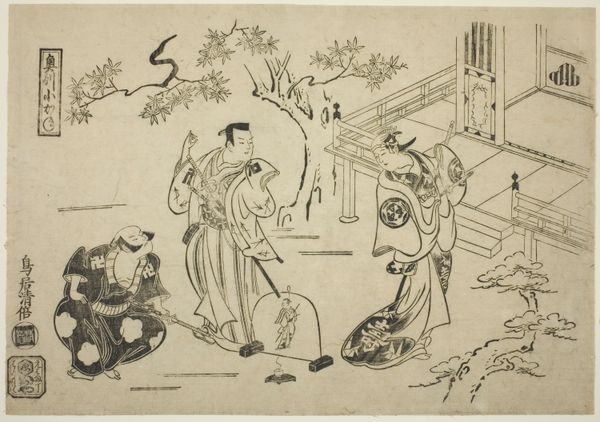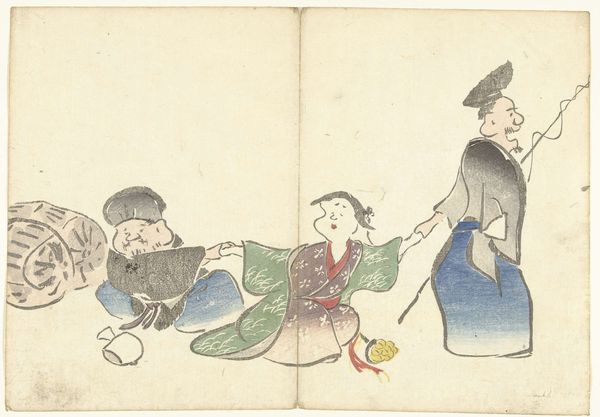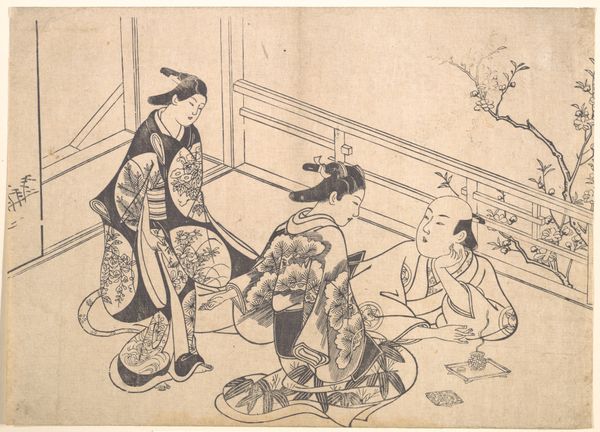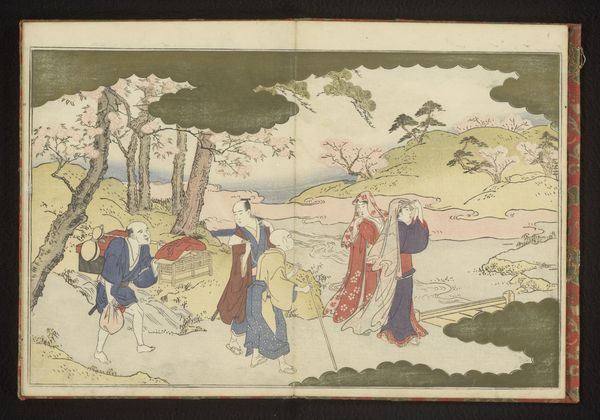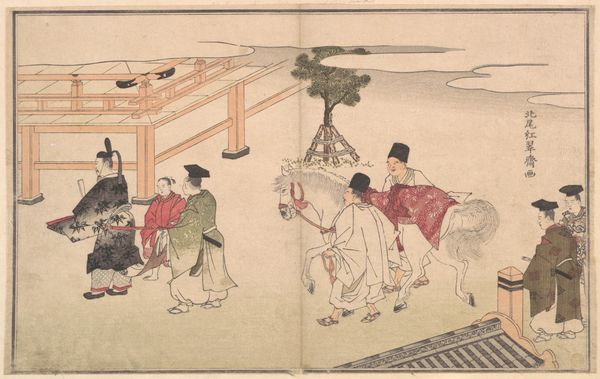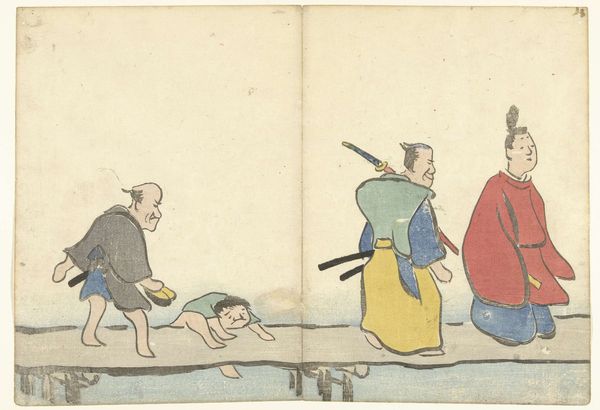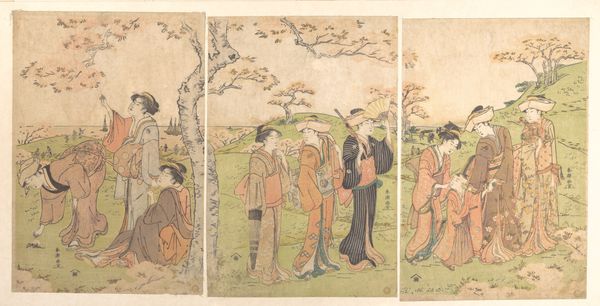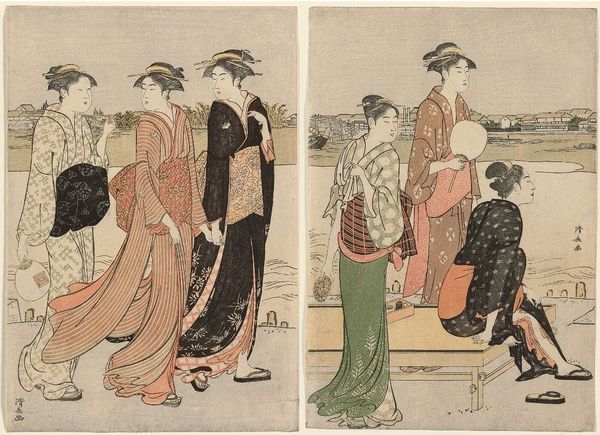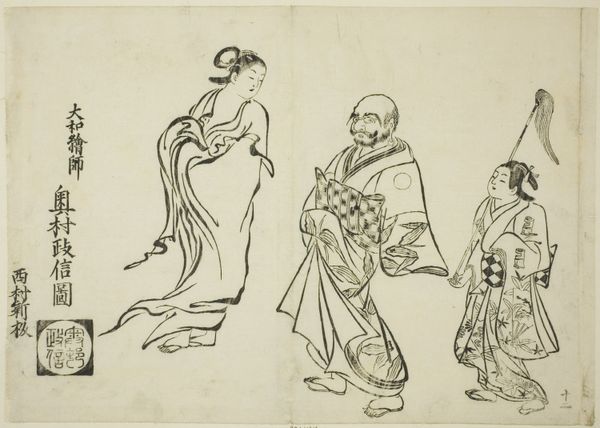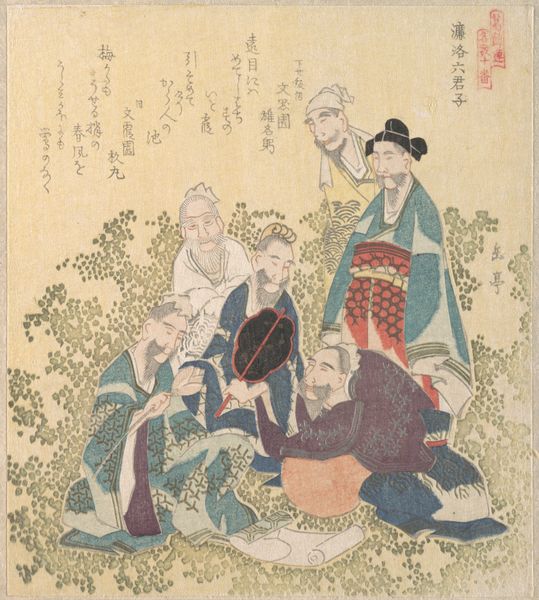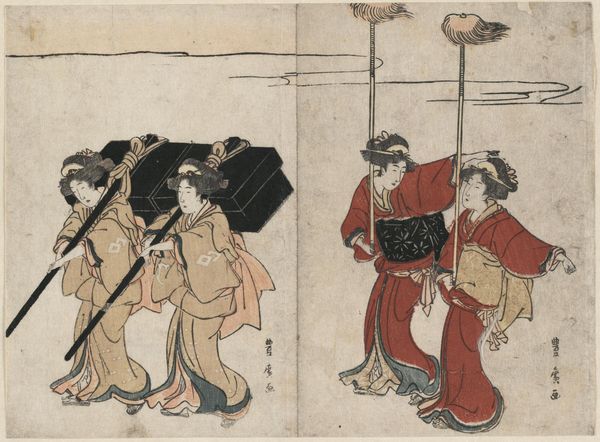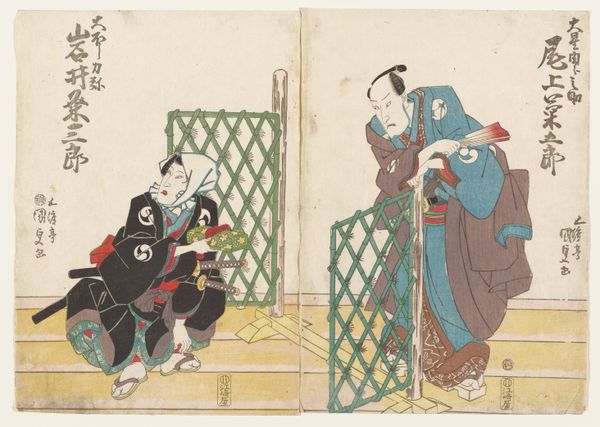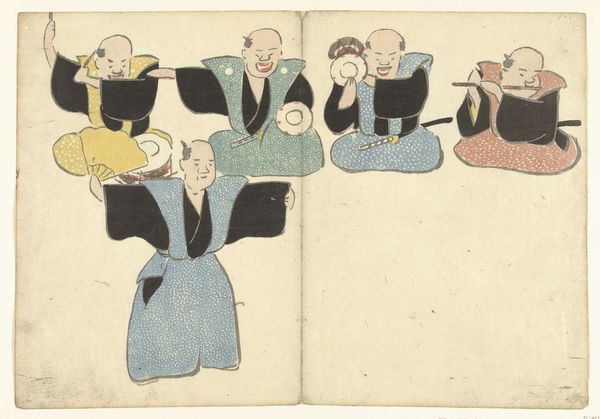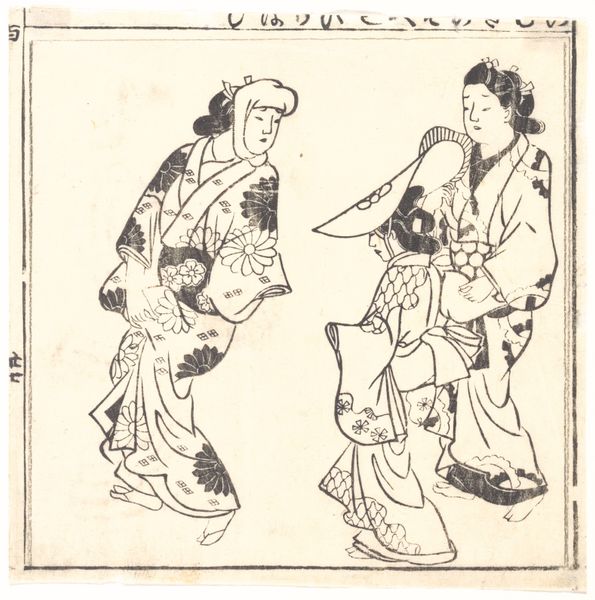
drawing, ink, woodblock-print
#
drawing
#
narrative-art
#
asian-art
#
landscape
#
ukiyo-e
#
figuration
#
ink
#
woodblock-print
#
genre-painting
Dimensions: height 255 mm, width 368 mm
Copyright: Rijks Museum: Open Domain
Editor: This fascinating woodblock print from 1826, titled "Seven Lucky Gods in a Bamboo Forest" by Nakamura Hōchū, seems like a moment frozen in time. The figures, the bamboo... there's almost a dreamlike quality to the scene. What resonates with you most when you look at this piece? Curator: What I see is a careful dance between reality and aspiration. Consider the Seven Lucky Gods themselves; they represent virtues that humans have sought across millennia: wealth, happiness, longevity, and so on. They appear in a bamboo forest which, in Asian art, is often a symbol of resilience and flexibility. What happens when you see the gods juxtaposed in this landscape? Editor: It feels almost like they are part of the landscape themselves, not separate from it. Curator: Precisely. Notice how their expressions and postures also subtly hint at deeper symbolic meanings. One holds a scroll, suggesting knowledge, while another carries a staff representing authority or guidance. Their garments and adornments too, reflect layered meanings of power, fortune, and status. It's like reading a visual poem about human desires and the environments in which we seek fulfillment. What do you make of that empty scroll? Editor: Hmm, is it an invitation to write our own hopes and dreams? Or maybe it symbolizes that fortune is yet to be written? Curator: Yes, the blankness invites interpretation, hinting that luck and prosperity are not merely given, but actively co-created with the divine, perhaps even found within ourselves. Editor: I see that now! It's like the artwork asks us to think about what luck means to us. Thanks, that adds so much depth to how I understand the piece! Curator: Indeed. By considering how visual elements can encapsulate and transmit cultural values across time, we gain a fuller appreciation of its message.
Comments
No comments
Be the first to comment and join the conversation on the ultimate creative platform.
